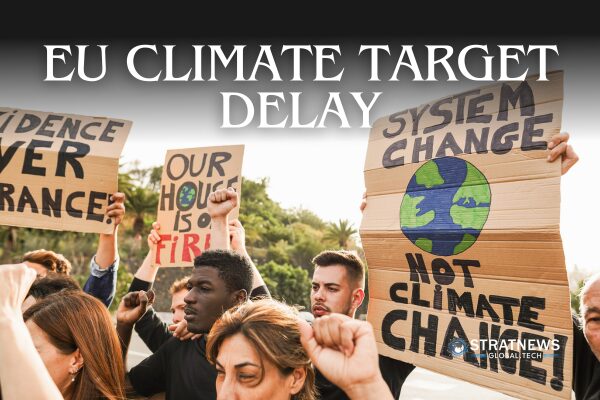EU Misses Emissions Deadline Amid Climate Policy Disagreements
The European Union has confirmed it will miss a key United Nations deadline to set new emissions targets. EU climate ministers announced the delay on Thursday, citing disagreements among member states. The missed deadline could weaken the bloc’s credibility ahead of the COP30 climate summit in November.
While major polluters like China are expected to meet the deadline, and Australia has already announced its new targets, the EU’s internal divisions have stalled progress. The bloc had planned to finalise emissions goals for 2035 and 2040 this month.
However, countries including Germany, France, and Poland requested that national leaders first debate the 2040 objective at a summit in October. This disrupted negotiations on both target years.
EU Sends Intent, Not Commitment
As an interim solution, EU ministers have agreed to submit a “statement of intent” to the UN. This statement outlines a potential emissions cut of 66.25% to 72.5% by 2035. The final figure is expected to be confirmed before COP30.
EU climate commissioner Wopke Hoekstra defended the bloc’s overall climate stance, stating: “If you zoom out, we continue to be among the most ambitious globally.”
The UN had called on countries to present updated climate goals at its upcoming General Assembly in an effort to re-energise global climate action. That momentum has recently slowed due to shifting political landscapes and competing national priorities.
US President Donald Trump’s decision to scale back climate commitments has also contributed to the decline in urgency. In Europe, leaders like Emmanuel Macron are balancing green policies with resistance from populist parties.
Climate Commitments Face Political Resistance
Germany’s climate state secretary Jochen Flasbarth warned against allowing climate debates to deepen divisions within the EU. “We must be careful not to split the EU further over climate policies,” he said, especially with economically weaker Eastern nations facing greater challenges.
Several EU governments have argued that failing to confirm a target ahead of COP30 could hurt the bloc’s influence during the summit. Finnish climate minister Sari Multala said, “It is hard for us to demand action from others if we fail to act ourselves.”
Traditionally, the EU has played a leading role in global climate negotiations, promoting ambitious targets and regulations. However, pressure to fund defence and industrial development is now testing that leadership.
Internal Disputes Continue Over 2040 Target
The European Commission has proposed a 90% cut in net greenhouse gas emissions by 2040. This target would shape the shorter-term 2035 goal. Yet countries like Italy and the Czech Republic oppose it, citing industrial concerns and cost pressures. These states are also calling for a rollback of existing policies, including the planned 2035 ban on new petrol and diesel cars.
In contrast, nations such as Spain and Denmark support stronger climate action. They point to the rising frequency of severe heatwaves and wildfires across Europe, as well as the urgent need to reduce reliance on imported fossil fuels.
Danish climate minister Lars Aagaard added, “There is war on our continent. While meeting ambitious climate goals, we must also protect our industrial base.”
EU leaders will revisit the 2040 emissions target at their summit in October.
with inputs from Reuters


